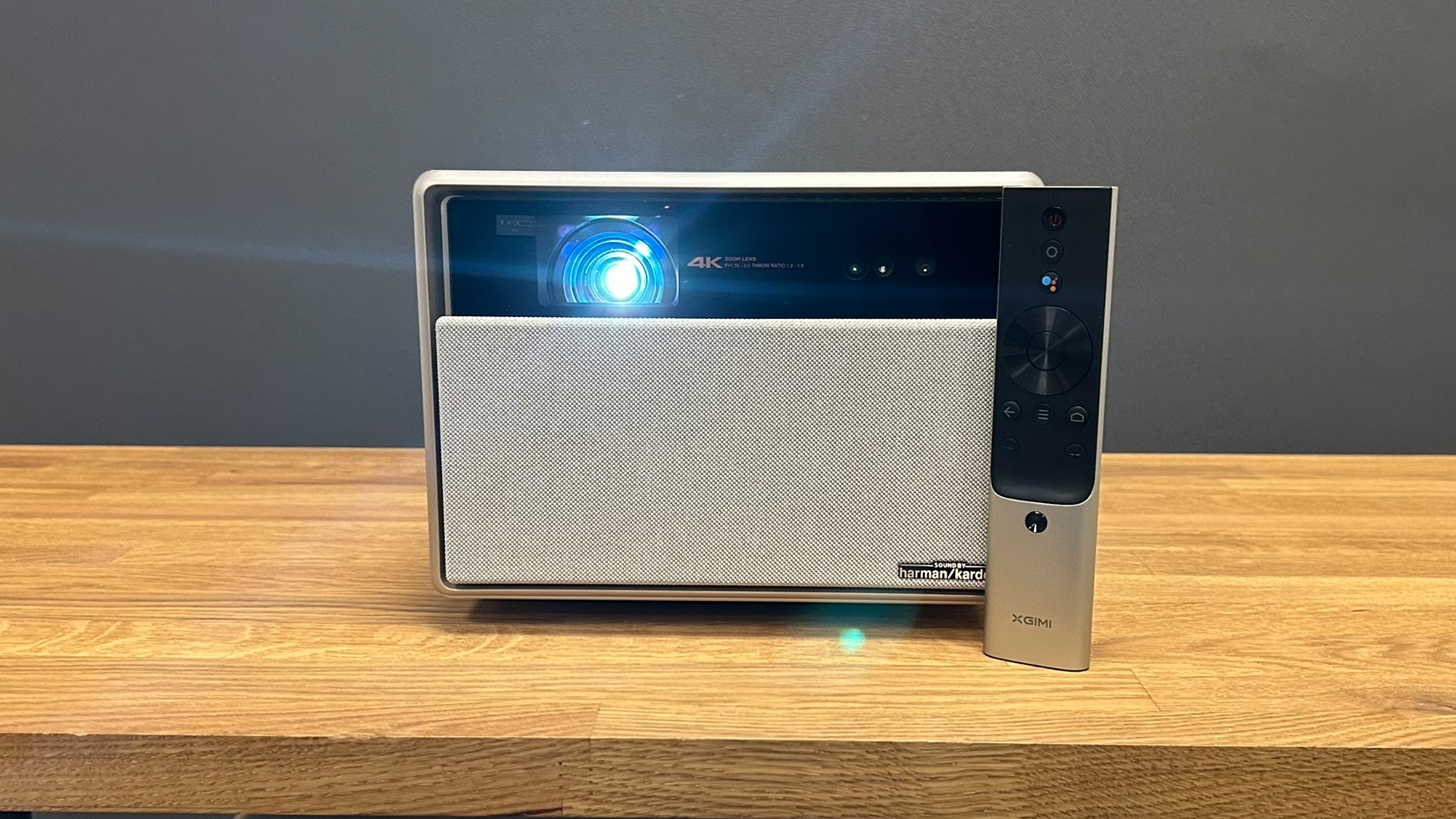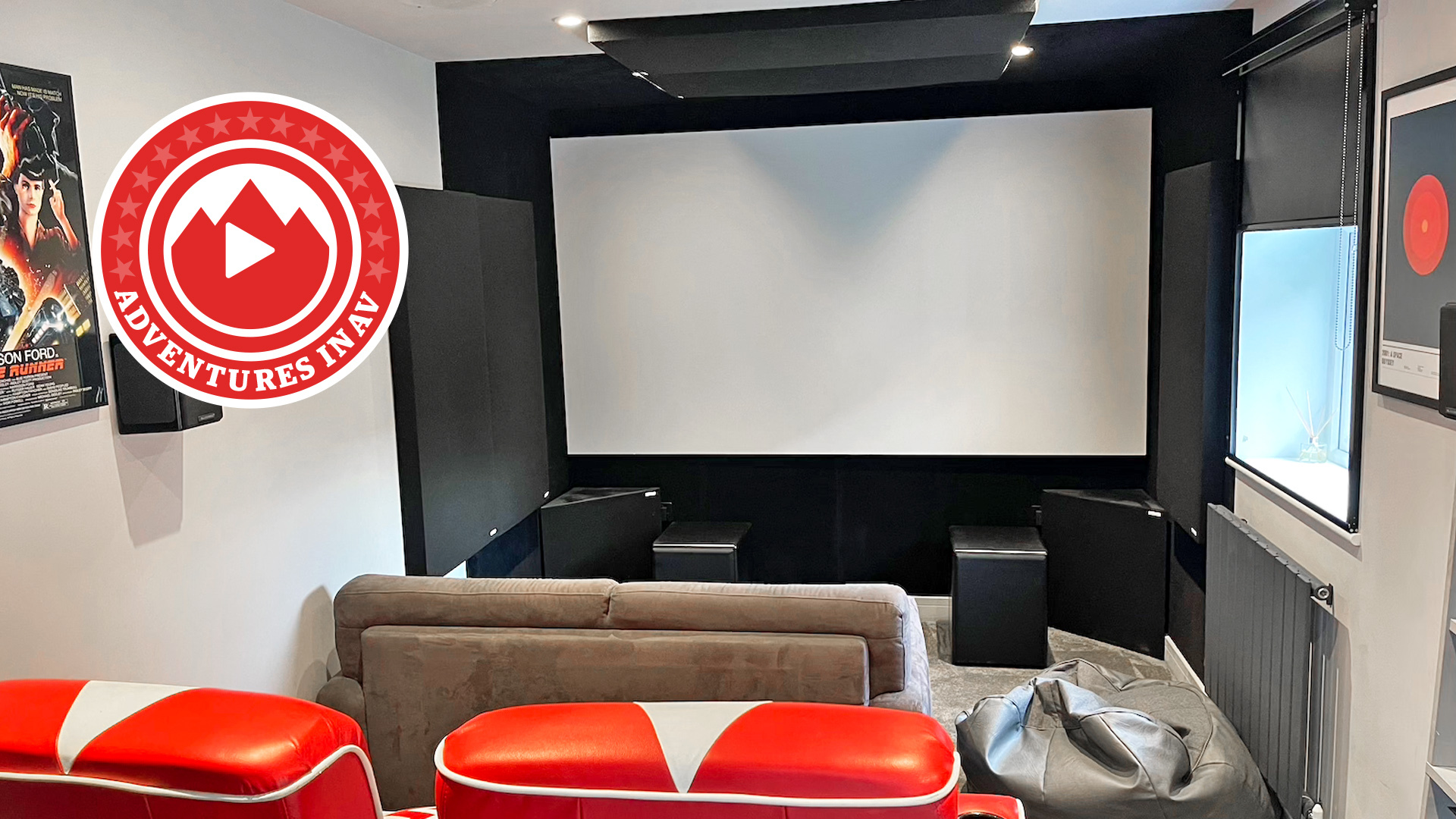What Hi-Fi? Verdict
Xgimi’s ingenious laser/LED lighting combi looks set for a bright future – once the wrinkles have been ironed out
Pros
- +
Exceptionally bright and colourful
- +
Appealing and unusual design
- +
Good built-in audio system
Cons
- -
Smart system is messy
- -
Pictures sometimes look a bit OTT
- -
Design could be divisive
Why you can trust What Hi-Fi?
Weird but almost wonderful projectors are like buses, it seems: you wait an age for one, and then two come along at once. For hot on the heels of the strikingly high-end ultra short throw Leica Cine 1 we reviewed just days ago, we now find ourselves gawping at the unique form of the Xgimi Horizon Ultra: a near cubic projector clad in leather (seriously) and equipped with a brand new so-called ‘Dual Light’ optical system.
The design is intended to make the Horizon Ultra less of an imposition on your living room, of course, while the innovative light system combines lasers and LEDs to deliver what Xgimi claims will be a brighter, more colourful but also more relaxing viewing experience. All of which makes Xgimi’s latest projector a potentially seriously interesting addition to the bustling home cinema scene – provided, of course, Xgimi has managed to nail its innovations at the first time of asking.
Price
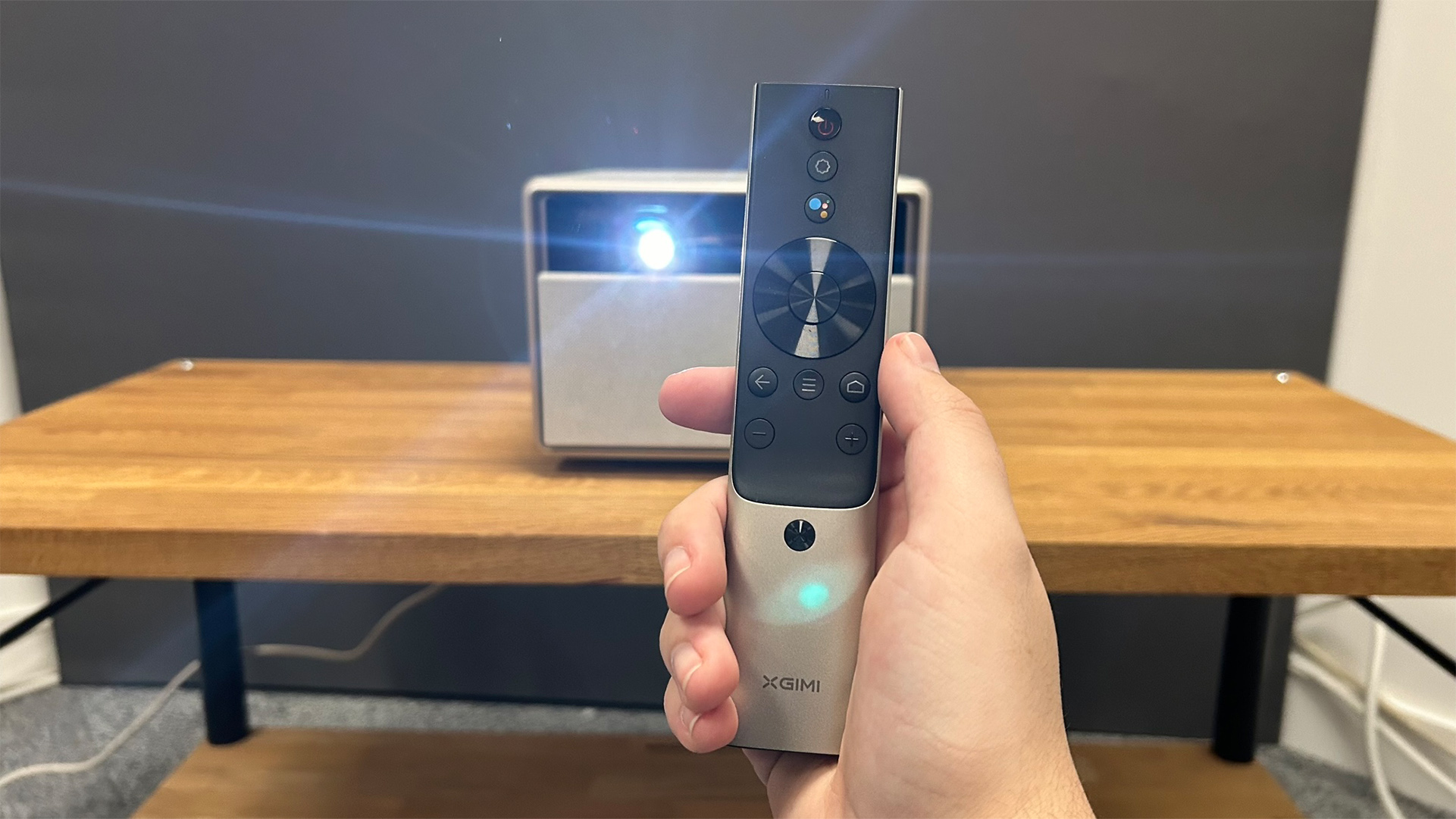
The Xgimi Horizon Ultra costs £1749 in the UK, $1599 in the US, and $3499 in Australia. These prices – especially the US one – all look aggressive for a projector that offers eye-catching innovation on both the design and technology fronts.
For some perspective, this pricing sits slightly above the sort of prices now becoming commonplace with ‘regular’ 4K projectors, and just below the sort of prices we’re now typically starting to find attached to the latest breed of Ultra Short Throw ‘TV replacement’ projectors.
It’s worth bearing in mind when weighing up the Horizon Ultra’s value that its combination of laser and LED lighting means you won’t need to keep replacing bulbs every 2000-5000 hours of use as you would with a regular lamp projector.
Design
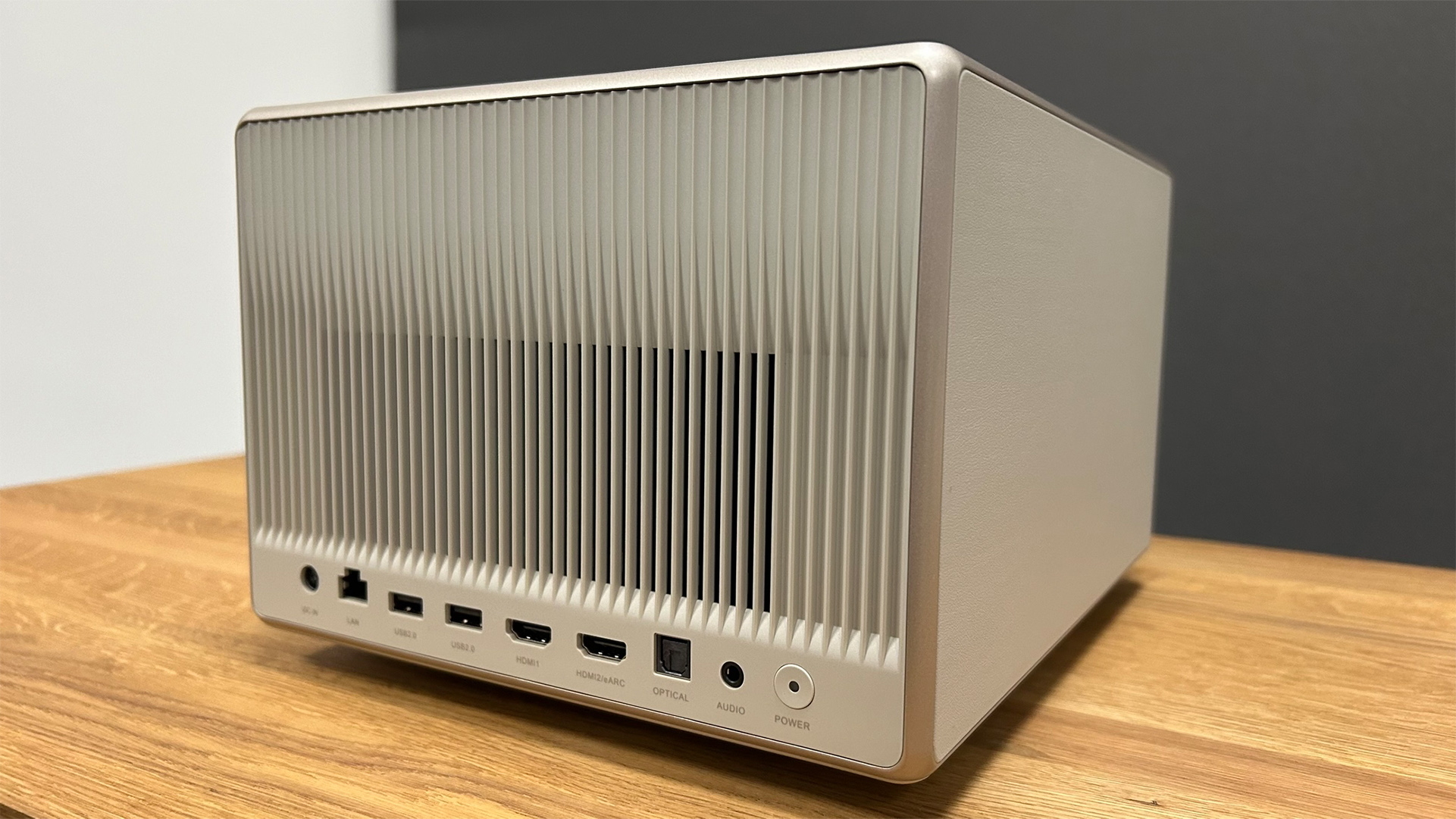
We’ve never seen a projector before that looks quite like the Xgimi Horizon Ultra. For starters, rather than the relatively flat oblong look associated with most long-throw projectors, it boasts an almost cubic shape – something it does to make room for an unusually powerful built-in sound system by projector standards.
Even more eye-catchingly, three of its sides are finished in leather, with the whole projector – including a motorised felt cover over the lens that slides majestically down when the projector’s powered up – sports a unique Misty Gold colour.
The latest hi-fi, home cinema and tech news, reviews, buying advice and deals, direct to your inbox.
Not everyone who saw the Horizon Ultra in our test rooms found Xgimi’s attempts to make a projector feel more like furniture a total success. Some felt, in particular, that one or two different colour options would have been a good idea. Overall, though, even its harshest detractors have to admit that it’s certainly a softer, gentler addition to your living space than are most projectors.
Its remote continues the lifestyle feel, combining silver metallic, black metallic and black plastic elements and feeling great in your hand. Buttonry is helpfully stripped back, too, making it easy to learn your way around. The only disappointment is the absence of any button backlighting.
Features
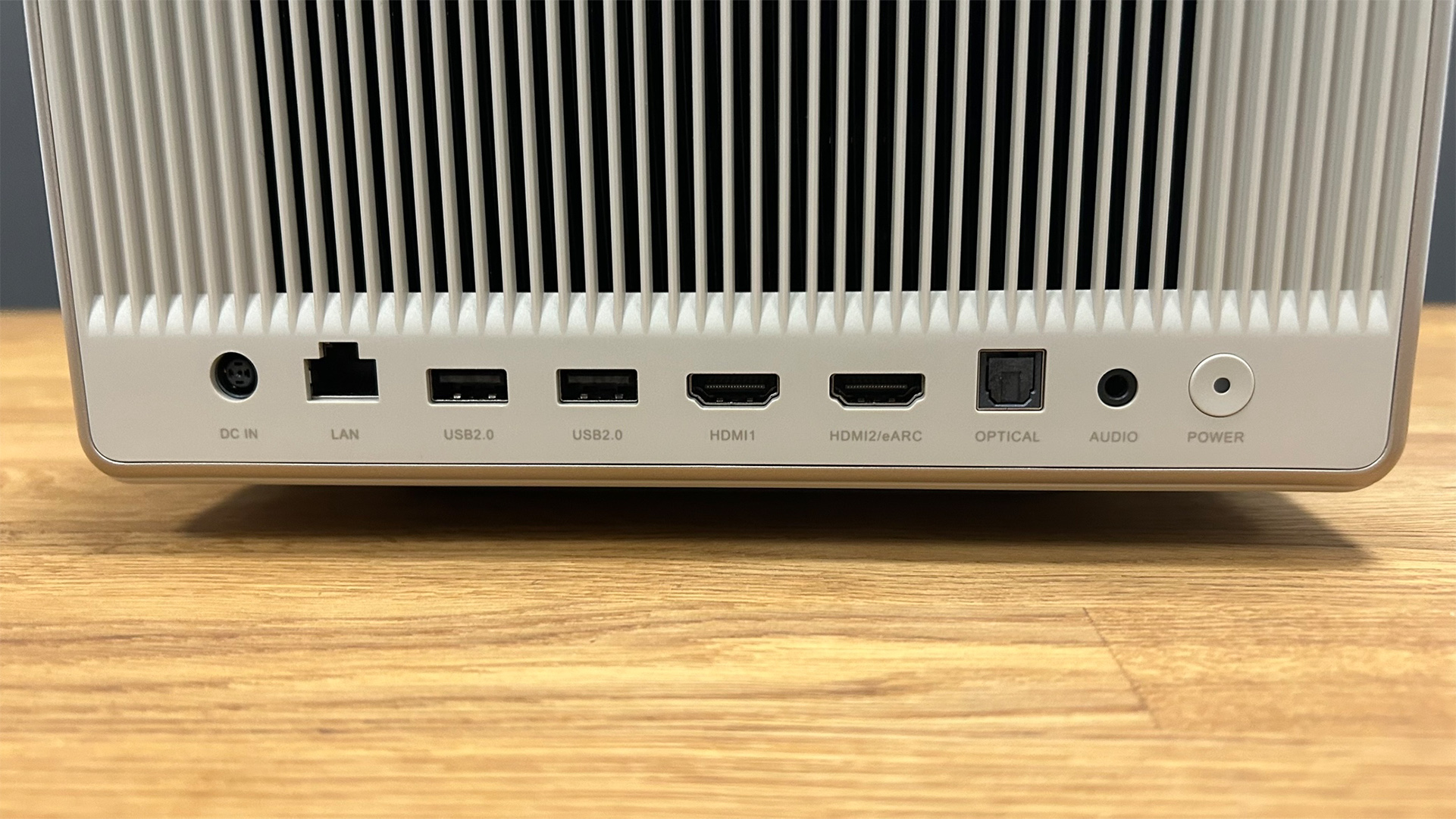
While its design is unusual enough to make it a key feature of the Horizon Ultra, it’s what’s going on inside that fancy bodywork that’s most piqued our interest. Specifically its use of what Xgimi calls a Dual Light engine that combines laser and LED lighting systems in a way that supposedly delivers the advantages of both while nullifying their potential negatives.
So, Xgimi says, the Horizon Ultra should deliver a less fatiguing, more accurate image than laser-only projectors, as well as avoiding the common laser problems of over-bright hot spots and sharpness-reducing colour convergence errors. While it should simultaneously be brighter (a 2300 lumens max light output is quoted) and cover a wider colour gamut than LED-only projectors.
The laser/LED blend also contributes to a promised 25,000 hours of uninterrupted playback life from the Horizon Ultra – enough for 12,500 two-hour films.
The innovative Dual Light system feeds into a single-chip DLP optical system capable of delivering a 4K experience courtesy of DLP’s XPR technology. This sees the mirrors used to deliver a DLP picture ‘flashed’ and shifted multiple times per frame to achieve a 4K effect so convincing that the US Consumer Technology Association (CTA) considers it to be the real 4K deal.
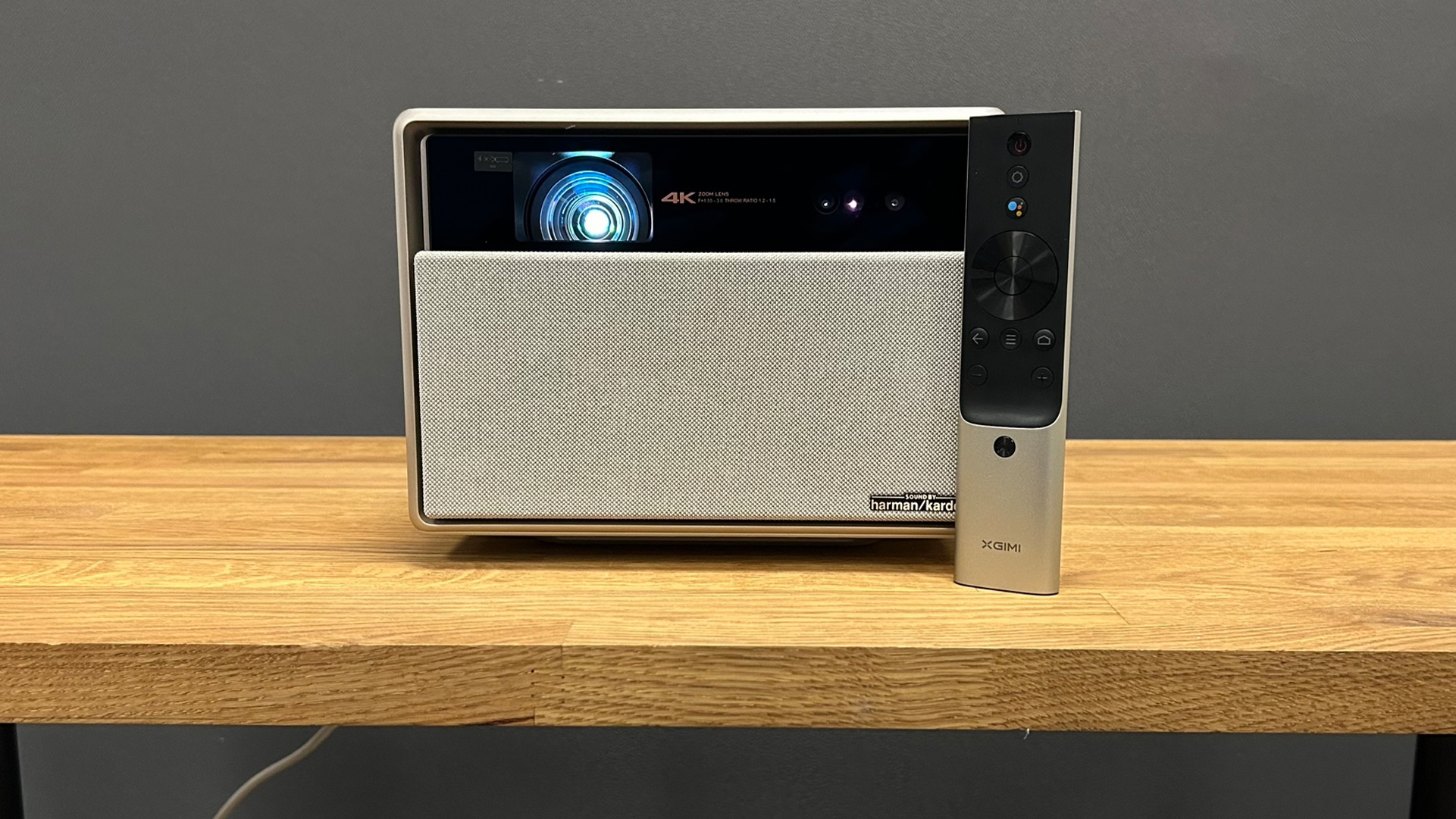
Projector type Dual Light (combination of laser and LED)
Processing Motion processing, Intelligent Screen Adaption 3.0
Screen size 40-200 inches
Native resolution Supports 4K via DLP XPR technology
Input lag with 60Hz in fastest response mode 18.5ms
Dimensions 27 x 22 x 17cm
The Horizon Ultra joins a sudden new wave of projectors able to support Dolby Vision alongside the more common (and basic) HDR10 and HLG high dynamic range formats.
As you would hope of a projector so focused on being a friendly addition to a living room rather than a permanently installed projector for a dedicated home cinema room, the Horizon Ultra goes much further than most projectors to make itself easy to set up.
For starters, there’s an impressively flexible and finely calibrated motorised optical zoom adjustment, with further installation assistance coming from an Intelligent Screen Adaption 3.0 facility that offers automatic auto keystone correction and focus adjustments, as well as being able to detect wall colours and adjust the image to compensate if you’re not projecting onto a screen.
Unusually, the Horizon Ultra’s picture brain even extends to a feature that can auto-adjust the image (for colour as well as brightness) based on the amount of ambient light in your room. While people who can’t/don’t want to fully black out the room might like the sound of this feature, though, it completely falls down if you leave it active in a dark room, making the picture so dark you can barely see it.
Connectivity is about par for the home cinema projector course. This means, most importantly, that alongside a 3.5mm headphone jack, an optical audio output, two USBs, a LAN port and the now increasingly expected wi-fi and Bluetooth support, you get two HDMI ports. One of these supports eARC for passing lossless Dolby Atmos soundtracks out to eARC-capable soundbars or AVRs, and both support fixed frame rate signals up to 4K/60Hz. There’s no support for the 4K/120Hz and VRR now output by the Xbox Series X, PS5 and premium PC graphics cards, but such support is currently rare across the projector world.
The promised brightness and colour response still has the potential to make the Horizon Ultra an enjoyable gaming display though – especially as it carries a ‘Boost’ game preset mode that remarkably gets the projector’s input lag (the time it takes to render video) down to a seriously speedy 18.5ms. Note, though, that the Boost mode only works if you turn off the projector’s auto keystone correction system. If you want to keep that on, lag rises to a still decent 35.2ms.
The Horizon Ultra extends its living room rather than dedicated home theatre credentials further by carrying a built-in Android TV smart system. Unfortunately, though, as is often the case with Android platforms on projectors, this only offers a patchy experience that finds some of the catch-up apps (including the BBC iPlayer) for key UK terrestrial broadcasters absent, and Netflix broken at the time of writing.
On the plus side, the provided Prime Video, Disney+ and Apple TV apps are, at least, nativised to the projector, enabling them to take advantage of the projector’s 4K, HDR and Dolby Atmos talents. There’s Google Assistant voice control support via a mic in the Horizon Ultra’s remote control, too. Overall, though, the integrated smarts are so hit and miss that you’ll probably want to just use an external smart streaming box or stick anyway.
In one final hat tip to its desire to slot effortlessly into a living room home entertainment environment, the Xgimi Horizon Ultra carries a built-in 2 x 12W speaker system capable of decoding and playing Dolby Atmos and DTS-HD mixes (as well as everything below these premium formats, of course). This speaker system has been designed with audio brand Harman Kardon, too, so hopefully that Dolby Atmos support will be more than just a box-ticking exercise.
Picture
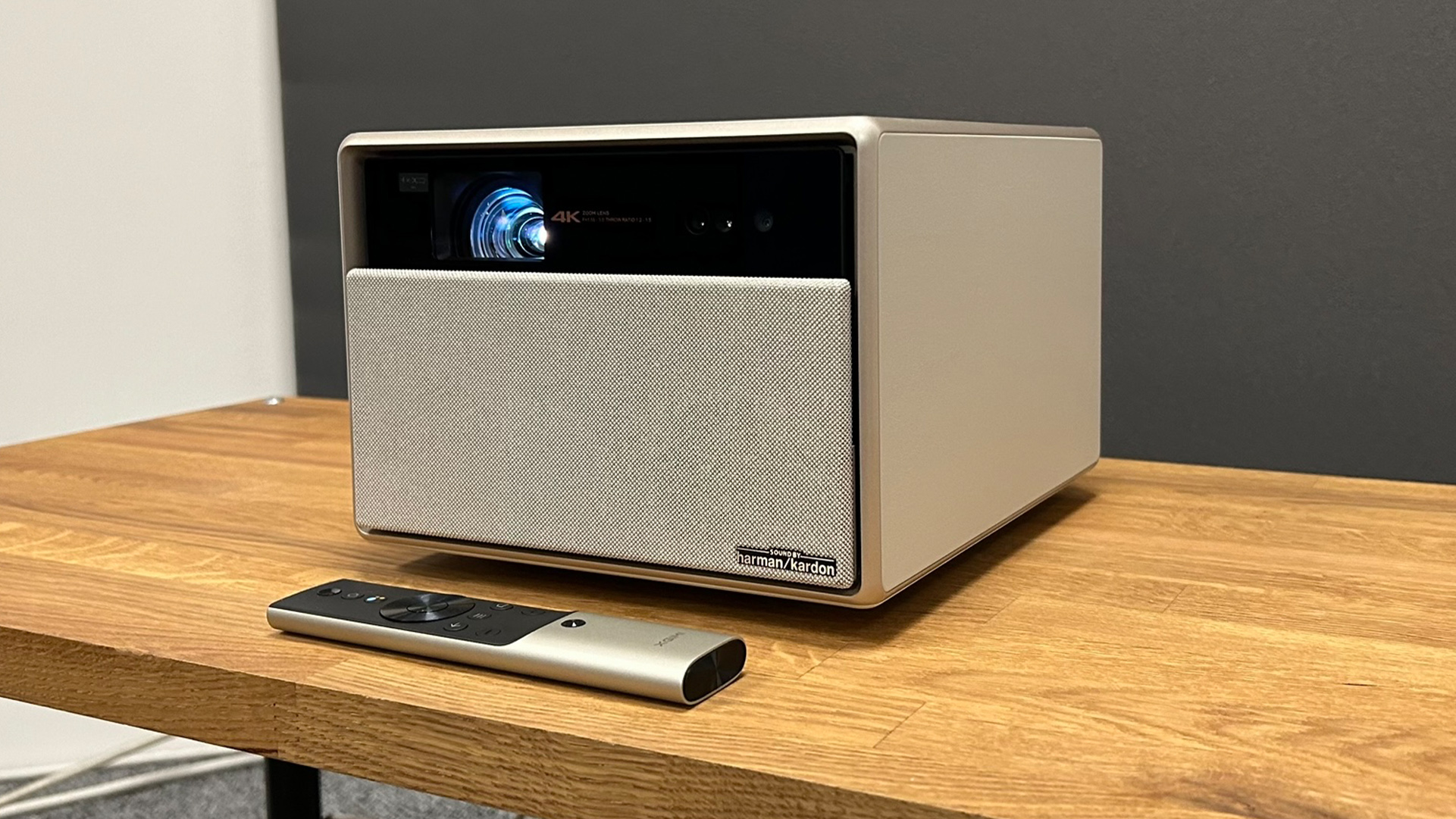
For a while it looked like the Xgimi Horizon Ultra was going to see its new Dual Light system burst onto the scene in a blaze of full five-star glory.
For starters, as billed its colour response is something to behold. Xgimi claims its new projector can cover more than 95 per cent of the DCI P3 colour spectrum, and first impressions are that it really can do every bit of that and maybe a bit more besides. Rich, bright HDR content is delivered with much bolder, richer saturations than we see with the vast majority of projectors. In fact, we’re struggling to think of any other projector for anything like as little money that delivers colours with as much potency and brightness.
That brightness is, again, sufficiently strong to make Xgimi’s 2300 lumen claims actually feel quite conservative. Coupled with the vivid colours, the brightness delivers a picture that does more justice to HDR than we’d once have imagined a projector ever could (though obviously no projector has enough brightness or local light controls to compete with a TV in this respect).
Despite the heavy saturations the Horizon Ultra is capable of, its clever laser/LED lighting combination unlocks some excellent tonal nuance amid the richness. Skin tones avoid that plasticky, mannequin-like finish you can sometimes get with affordable projectors, and there’s an excellent sense of depth and three-dimensionality both to the picture as a whole and to specific objects within each image.
Detail and texturing is high too, leaving you in no doubt that you’re enjoying something at least adjacent to a full 4K experience. The sharpness doesn’t break down badly, either, when there’s a lot of motion in a 24p movie sequence, while SDR and HD sources both translate extremely well to the Horizon Ultra’s higher specifications.
The picture strengths we’ve described so far together with its exceptionally responsive ‘Boost’ mode make the Horizon Ultra a mostly hugely enjoyable gaming display – we are pleasantly surprised, considering how bright its pictures are, by how little it suffers with DLP’s rainbow effect, where stripes of pure colour flit around in your peripheral vision or over stand-out bright picture elements.
The sheer intensity of the Horizon Ultra’s images, especially the full-on colour saturations, make it capable of delivering more satisfying images in ambient light than most projectors – including many of the ultra short throw models designed more specifically as alternatives to living room TVs.
Actually, leaving at least a little ambient light in your room is something we’d recommend with the Horizon Ultra, for a rather less positive reason. Namely that its excellent colour and brightness comes at the expense of unconvincing looking dark scenes. As with many other recent projectors that really try to capture a flavour of the brightness and colour vibrancy associated with a ‘true’ HDR experience, the Horizon Ultra just can’t control its light sufficiently well to deliver convincing black levels.
As a result, dark scenes look consistently greyed over and milky, even taking on a slightly yellow caste at times. This instantly makes them look much flatter and less convincing than bright scenes do. The yellow-grey wash effect is sufficient to cause dark non-black colours to look slightly off kilter too, as well as hiding subtle shading and details in dark areas.
You can retrieve some of the shadow detail, at least, by (counterintuitively) raising the projector’s bright levels a little. This also makes the picture generally a little more likely to distract you from the black level limitations. Unfortunately, though, it can leave bright parts of the picture and bright shots looking strained and forced.
As a simple example of the sort of frustrations associated with trying to resolve the Horizon Ultra’s dark scene/bright scene performance imbalance, we were essentially forced to use the projector’s Dolby Vision Bright preset even in darkened rooms to preserve shadow detail, when the Dolby Vision Dark mode would have been otherwise preferable in terms of the more natural and balanced colours it produces.
The fact, too, that in the end we preferred to leave a little bias lighting on when watching the Horizon Ultra to disguise its black level limitations is also a pity, given that this dilutes the impact of the exceptionally rich colours that are arguably the projector’s biggest (and most promising in terms of Dual Light technology’s future) achievement.
We also get a feeling at times when watching the Horizon Ultra working on relatively mild looking HDR content as if it is trying a bit too hard, pushing colours a bit too far, either to distract you from its black level issues or because Xgimi just couldn’t resist showing off too much what its undeniably impressive new light engine is capable of. You can rein-in this occasional slip into excess via the provided colour controls, but hopefully a more mature second generation of the Dual Light system will stick to using the technology’s potential to create a more convincing HDR image rather than showboating.
Sound
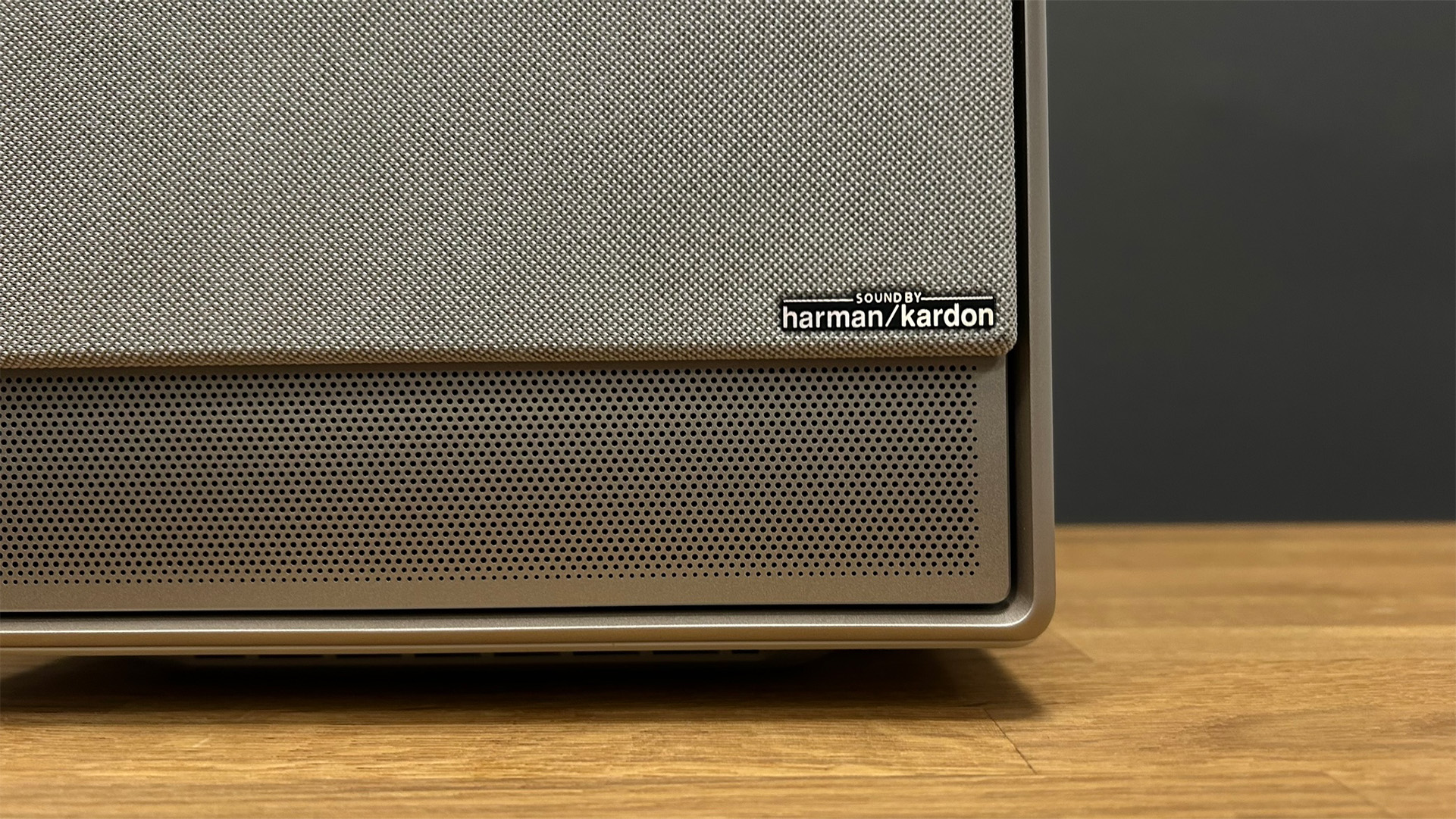
The Horizon Ultra’s Harman Kardon-assisted sound system works very well for the most part. It manages to cast most of its sound a satisfying distance from its bodywork for starters, creating an audio presence that actually seems to be emanating more from the vicinity of your distant screen than it does the projector sat in front of it. Dialogue escapes a little less readily from the Horizon Ultra than the rest of a typical movie mix, oddly, but the sensitivity of the speakers is good enough to ensure that dialogue still always sounds clear and reasonably well contextualised despite it not being paired with the onscreen action quite as effectively as we’d have liked.
The sensitivity of the speakers also helps the Horizon Ultra express lots of detail from even the busiest mixes, and while the Horizon Ultra’s bass doesn’t reach as low as some TVs and even a few rival projectors do, it’s deep enough to stop action scenes sounding thin or shrill.
Verdict
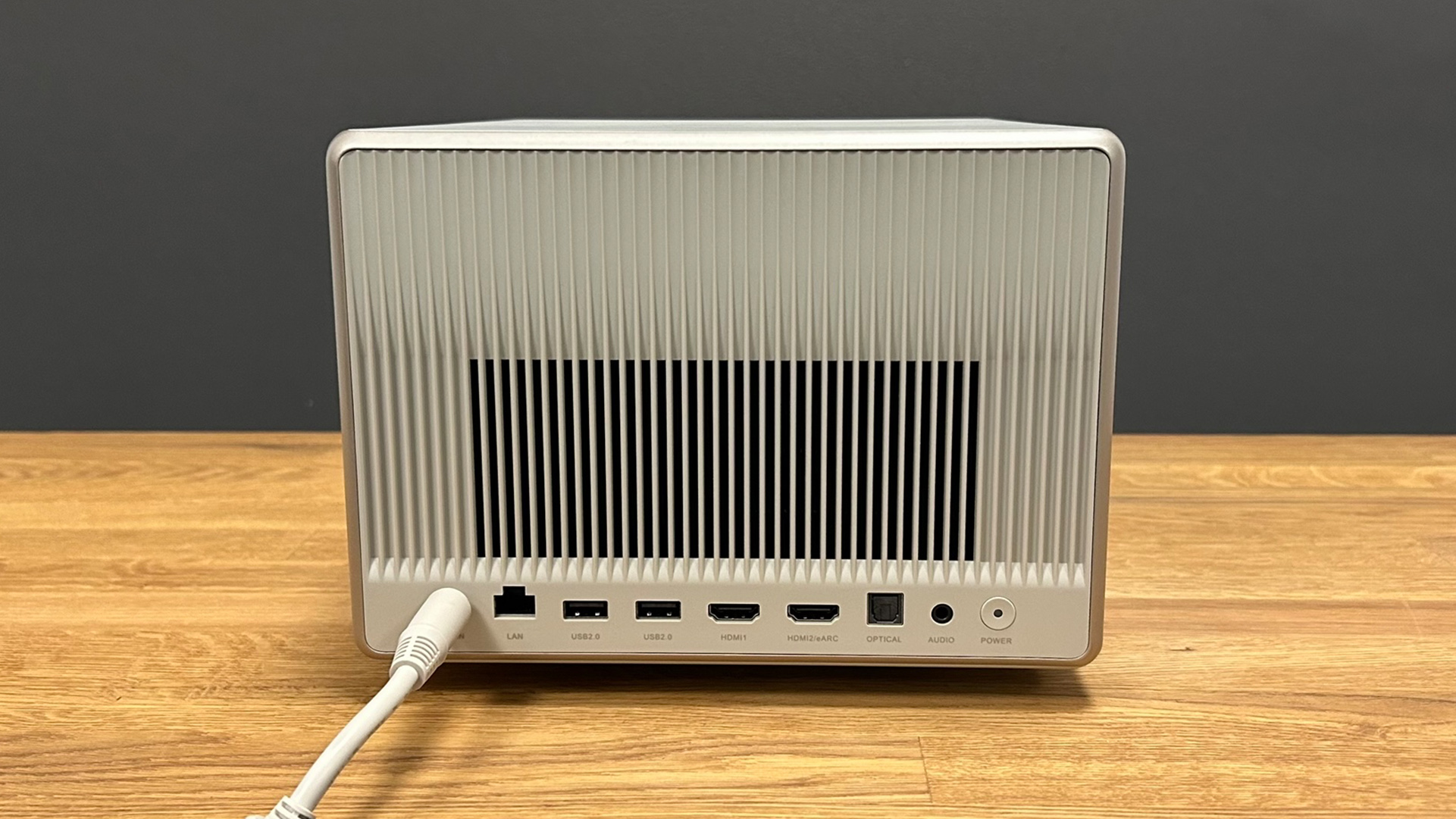
The Horizon Ultra marks a pretty auspicious debut for Xgimi’s new hybrid laser/LED light engine. There are certainly things about its picture – its vibrancy, its exceptional colour range, its sharpness and its strikingly effortless intensity among other things – that suggest the technology has a bright (pun intended) future.
It’s also exceptionally good at punching through ambient light if you fancy a very big picture on movie nights but find it difficult to fully black out your room, and its sound is good enough to make tracking down an external sound system an option rather than the necessity it is with most projectors.
Xgimi will need to improve black levels and tone down its show-off urges for Dual Light’s next outing if it wants to fully win us over to the technology’s cause, but even as it stands the Horizon Ultra is good enough to count as a very welcome addition to the increasingly diverse home projection world.
SCORES
- Picture 4
- Sound 4
- Features 4
MORE:
Read our review of the Hisense PL1
Also consider the Epson EH-TW7100
Read our BenQ X3000i review
Best projectors: Full HD, 4K, and short-throw
What Hi-Fi?, founded in 1976, is the world's leading independent guide to buying and owning hi-fi and home entertainment products. Our comprehensive tests help you buy the very best for your money, with our advice sections giving you step-by-step information on how to get even more from your music and movies. Everything is tested by our dedicated team of in-house reviewers in our custom-built test rooms in London, Reading and Bath. Our coveted five-star rating and Awards are recognised all over the world as the ultimate seal of approval, so you can buy with absolute confidence.
